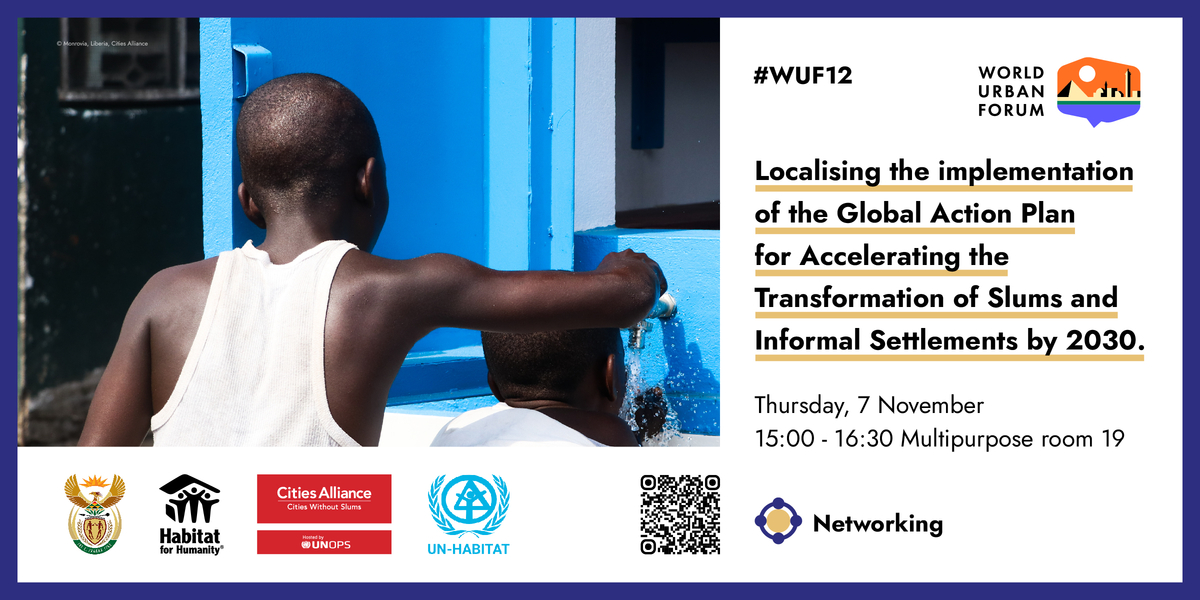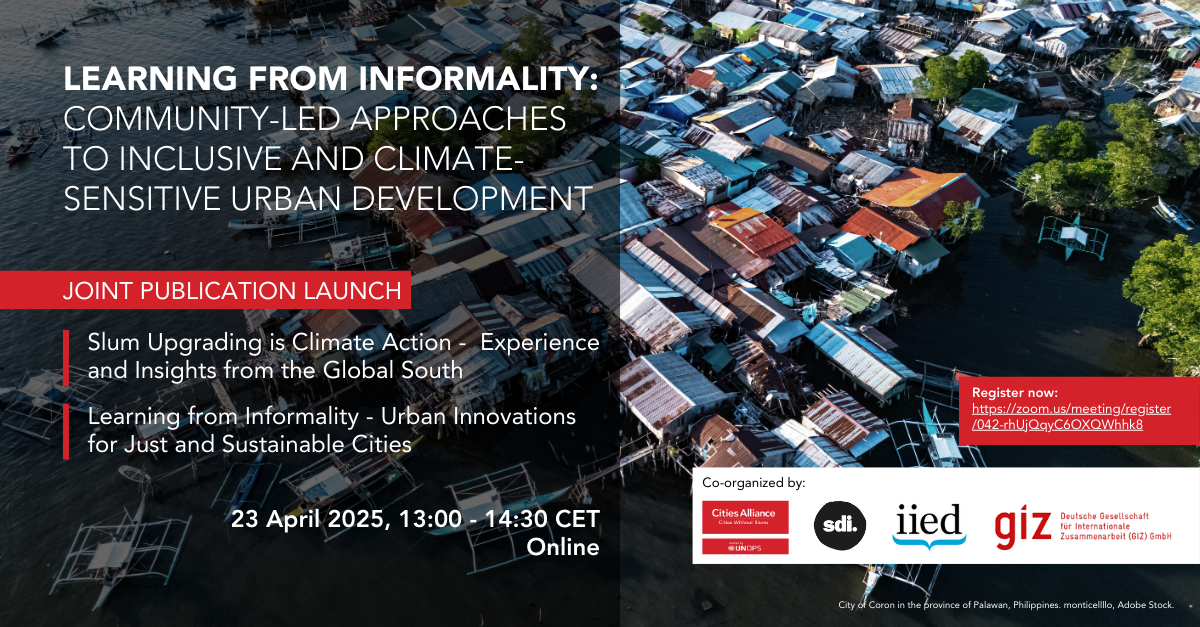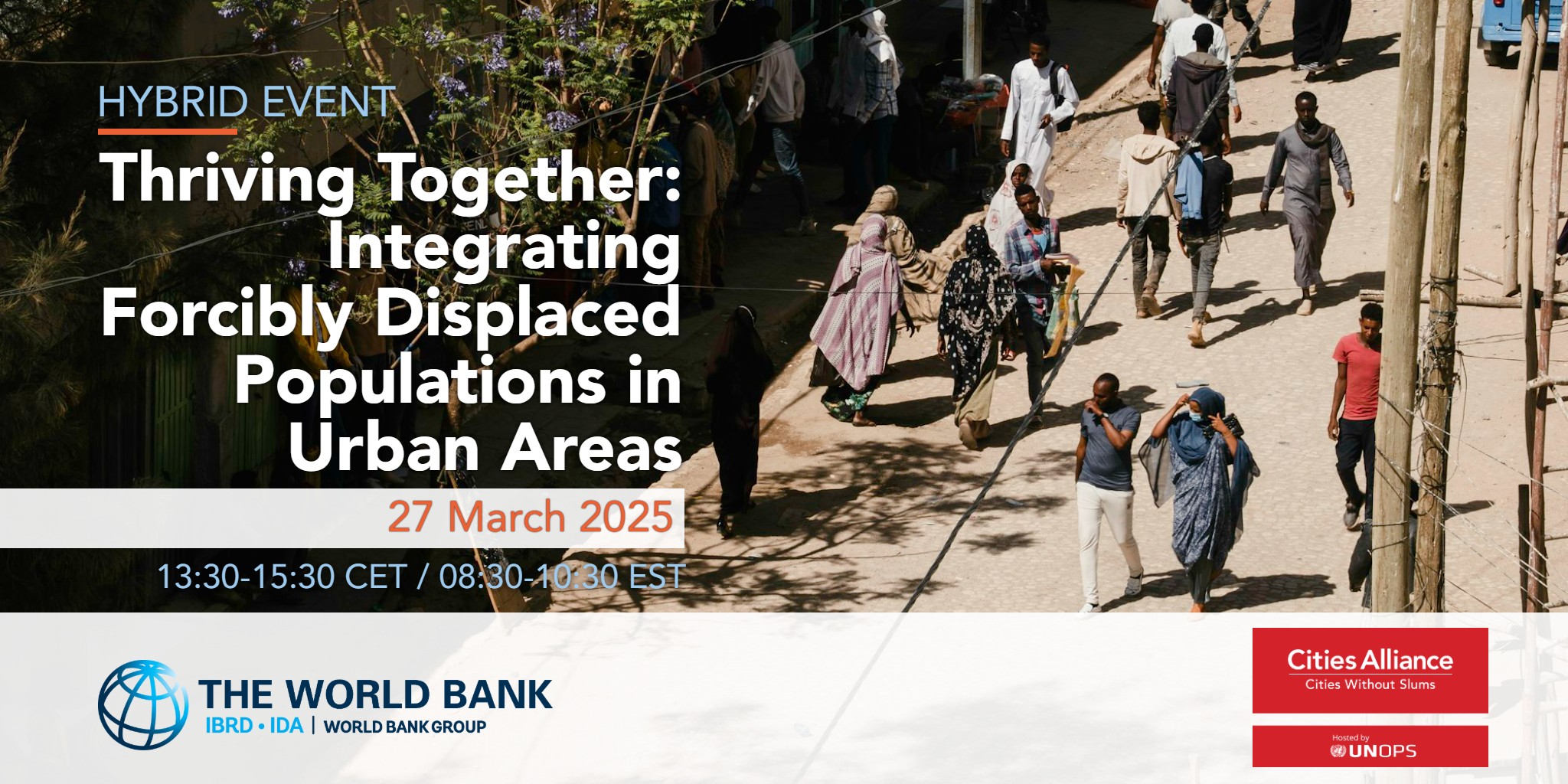- Who We Are
- How We Work
- Regional / Country Initiatives
- Legacy
- Core Themes
- Working Groups
- Portfolio & Results
- Newsroom
- Resources
WUF12: Localising the Implementation of the Global Action Plan for Accelerating the Transformation of Slums and Informal Settlements by 2030

Cities Alliance is co-organising the networking session “Localising the Implementation of the Global Action Plan for Accelerating the Transformation of Slums and Informal Settlements by 2030” at WUF12 in cooperation with the Department of Human Settlements of South Africa, Habitat for Humanity International, and UN-Habitat.
In the final Decade of Action to achieve the Sustainable Development Goals (SDGs), SDG indicator 11.1.1 to “reduce the proportion of urban population living in slums, informal settlements or inadequate housing” is one of the nine indicators whose implementation has regressed globally. A rapidly growing urbanisation of poverty with projections of three billion slum dwellers by 2050, if no action is taken, calls for urgent, significant, and coordinated efforts.
UN-Habitat and its partners in the Slums and Informal Settlements Network (SISnet) have elaborated a Global Action Plan: Accelerating for Transforming Informal Settlements and Slums by 2030 (GAP) to provide a vision, principles, accelerators, and action areas for all governance levels.
Spearheaded by the Government of South Africa, the GAP was launched in October 2022. Its ten action areas were formally adopted by Resolution 2.2 “Accelerating the transformation of informal settlements and slums by 2030” during the UN-Habitat Assembly in June 2023.
To support those efforts, Cities Alliance agreed to support the GAP by facilitating the Informality Task Force (ITF), a platform for exchange between a variety of stakeholders engaged in slum transformation.
The networking session aims to bring together the members of the ITF and additional stakeholders to set key milestones for localising the implementation of the GAP in countries that have actively supported the resolution by:
- Providing a space for dialogue to foster commitment at all levels for implementing solutions that respond to locally prioritised demands
- Consolidating multilevel partnerships that enable local stakeholders to mobilise technical and financial support and leverage synergies for implementation, tapping into the rich diversity and complementarity of expertise of the SIS network.
Objectives
- Illustrate engagement. Identify and feature the efforts of partners that have made affirmative commitments to the GAP implementation, or that are implementing slum transformation actions aligned with the GAP recommendations, to show potential for replication and scaling up.
- Deepen engagement. Engage local stakeholders of countries that have acted as key partners of the GAP in specifying current priorities within the key actions of the resolution to strengthen political commitment to the implementation of the GAP.
- Broaden engagement. Build short, medium, and long-term partnerships between local and national governments, international development and financing partners, and other stakeholders to provide technical and financial support to local governments to support the translation of prioritised demands into pioneer actions to implement the GAP and monitor its achievements.
- Foster engagement. Mobilise the actors of the SISnet and other stakeholders to adhere to the growing partnership dedicated to implementing the GAP.
Panelists
Mmamoloko Kubayi, Minister of Human Settlements, South Africa
Jader Barbalho Filho, Minister of Cities, Brazil
Anacláudia Rossbach, Executive Director, UN-Habitat
Jonathan Reckford, Chief Executive Officer, Habitat for Humanity International
Greg Munro, Director, Cities Alliance
Cheikhou Balde, Principal, Urban Development Officer, African Development Bank
Rose Molokoane, Chairperson, South African Homeless People's Federation
Register on the WUF12 website.





